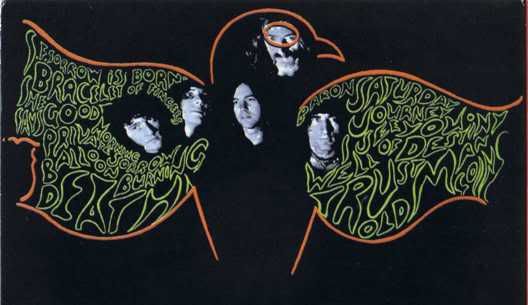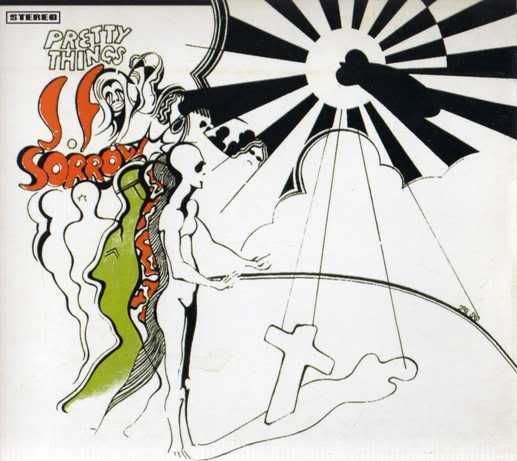 |
| NetLab · Rules · Torrent Tracker · Have a problem? · Eng/Rus |
 Help Help
 Search Search
 Members Members
 Gallery Gallery
 Calendar Calendar
|
| Welcome Guest ( Log In | Register | Validation ) | Resend Validation Email |
|
Posted: 18-03-2008, 02:12
(post 1, #827915)
|
||||||||||||||||||
|
Newbie Group: Members Posts: 8 Warn:0% |
----------------------------------------------------
Band Phil May: Vocals, Cover Design John Povey: Organ, Percussion, Sitar, Vocals Dick Taylor: Guitar, Vocals Twink: Drums, Vocals Wally Allen Waller: Guitar, Piano, Guitar (Bass), Vocals, Woodwind This post has been edited by OlCh on 18-03-2008, 06:24 |
||||||||||||||||||
|
|||||||||||||||||||
|
Posted: 18-03-2008, 06:24
(post 2, #827923)
|
||
|
риполов-любитель Group: News makers Posts: 12604 Warn:0% |
 Review by Bruce Eder & Richie Unterberger Who could ever have thought, going back to the Pretty Things' first recording session in 1965 -- which started out so disastrously that their original producer quit in frustration -- that it would come to this? The Pretty Things' early history in the studio featured the band with its amps seemingly turned up to 11, but for much of S.F. Sorrow the band is turned down to seven or four, or even two, or not amplified at all (except for Wally Allen's bass -- natch), and they're doing all kinds of folkish things here that are still bluesy enough so you never forget who they are, amid weird little digressions on percussion and chorus; harmony vocals that are spooky, trippy, strange, and delightful; sitars included in the array of stringed instruments; and an organ trying hard to sound like a Mellotron. Sometimes one gets an echo of Pink Floyd's Piper at the Gates of Dawn or A Saucerful of Secrets, and it all straddles the worlds of British blues and British psychedelia better than almost any record you can name. The album, for those unfamiliar, tells the story of "S.F. Sorrow," a sort of British Everyman -- think of a working-class, luckless equivalent to the Kinks' Arthur, from cradle to grave. The tale and the songs are a bit downbeat and no amount of scrutiny can disguise the fact that the rock opera S.F. Sorrow is ultimately a bit of a confusing effort -- these boys were musicians, not authors or dramatists. Although it may have helped inspire Tommy, it is, simply, not nearly as good. That said, it was first and has quite a few nifty ideas and production touches. And it does show a pathway between blues and psychedelia that the Rolling Stones, somewhere between Satanic Majesties, "We Love You," "Child of the Moon," and Beggars Banquet, missed entirely. [This CD reissue on Snapper adds four valuable songs from their 1967-1968 singles ("Defecting Grey," "Mr. Evasion," "Talkin' About the Good Times," and "Walking Through My Dreams"). This version of "Defecting Grey" is the original, long, uncut five-minute rendition, and not of trivial importance; it's superior to the shorter one used on the official single.]  BIOGRAPHY by Richie Unterberger Of all the original British Invasion groups, perhaps none are as underappreciated in the United States as the Pretty Things. Featuring the hoarse vocals of Mick Jagger-lookalike Phil May and the stinging leads of guitarist Dick Taylor (who actually played in early versions of the Rolling Stones with Jagger and Keith Richards), the Pretties recorded a clutch of raunchy R&B rockers in the mid-'60s that offer a punkier, rawer version of the early Stones sound. Their first two albums, as well as a brace of fine major and minor British hits (of which "Don't Bring Me Down" and "Honey I Need" were the biggest), feature first-rate original material and covers, and remain the group's most exciting and influential recordings. Unfortunately, the band remained virtually unknown to American audiences, most of whom would first hear "Don't Bring Me Down" on David Bowie's Pin Ups album (which also included a version of the Pretties' "Rosalyn"). After their initial run of success, the group took a sharp left turn into psychedelia with the orchestrated album Emotions (1967), impressive singles that owed more to Pink Floyd than Bo Diddley, and, most significantly, S.F. Sorrow (1968). The first rock opera, S.F. Sorrow was a major influence on Pete Townshend, who released his much more successful opera, Tommy, with the Who the following year. Founding member Taylor left shortly after S.F. Sorrow, and the group continued to record progressive rock and hard rock with less impressive results through the mid-'70s, although Parachute (1970) was named Album of the Year by Rolling Stone. The group reunited sporadically for occasional gigs and recordings in their early R&B vein before officially re-forming to release Rage...Before Beauty in 1999 and Balboa Island eight years later. |
||
|
Posted: 19-03-2008, 15:13
(post 3, #828174)
|
||
|
Newbie Group: Members Posts: 40 Warn:0% |
это моно. а нет ли у кого стерео-варианта данного произведения? |
||
|
Posted: 19-03-2008, 15:22
(post 4, #828175)
|
||
|
Newbie Group: Members Posts: 8 Warn:0% |
De english poco pero de ruso ni te cuento. Sorry. English, please. This post has been edited by maskarasnake on 19-03-2008, 15:23 |
||


Powered by Invision Power Board v1.3.1 Final.


